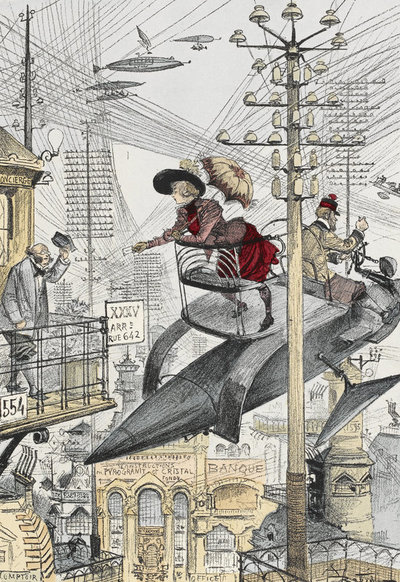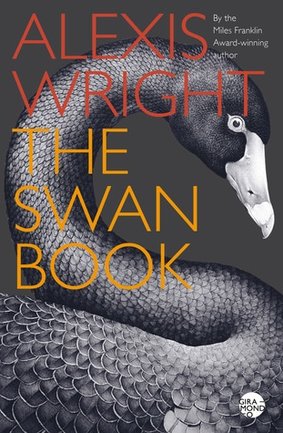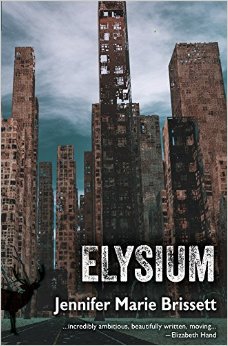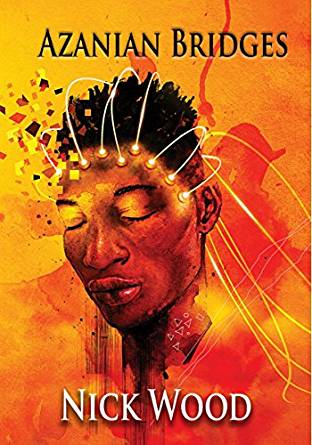|
Alexis Wright, The Swan Book, Constable, 2015. Audio version available on Audible. The Swan Book is by more way than one a novel that blur the genres. It is also something quite unique and if you are the right reader for it, this politically and ecologically engaged fantasy novel from Australia set in the near future will be a delight to read. Oblivia's life is defined by a traumatic event that she refuses to remember: she was gang raped as a young girl and escaped. She found refuge in the hollow of a tree where she remained until an old white woman, Bella Donna, found her and took her in. They both live in an internment camp in Australia, where Aboriginals are kept around a swamp filled with black swans and rusty hulls of old warships. The Book of Swan is a politically and ecologically engaged story. It is not only a harsh satire of both the way white Australians have treated Aboriginal people but also of how Aboriginal people dealt with it. It also describes a future where boat people are climate refugees fleeing the northern hemisphere. The focus of the first half of the novel, the swamp, is a striking metaphor of the slowly decaying Earth because of human pollution, while people stand by watching it. But anthropocentrism is refused to put instead the land and its sacredness at the heart of the novel, following many Aboriginal myths. In climate change scifi, the land often disappears and the focus is the human struggle, or the land is just the adversary. In The Swan Book, the animal life and the land are the heart of the story: it is where characters are born, like Oblivia in the hollow of the tree, where they find or repossess their stories, where they are reborn through a catabasis of crossing deserts. This is also where the novel blurs the genres: despite being steeped in climate change consequences in the near future, it is also very much a fantasy novel, full of the natural and supernatural world. The writing has all the hallmarks and quality of oral literature. The audiobook, if well done (if done at all?), should be an absolute delight. This writing needs the voice of an Aboriginal story-teller to express the cadence, the gallows humour, the jump from one language to the other. When reading it, it's a bit more hard work: Wright plays with different languages, with metaphors that builds themselves inside other metaphors and with sentences that follow the rhythm of a bated breath or of a laughing voice. I progressed slowly when reading because each sentence was a world to discover. The amazing mix of cultures and images and languages gives an extraordinary density to the novel. It also makes for a not very straightforward story. Let's face it: if you're looking for a simple enough story to follow, The Swan Book isn't for you. It'll require all your attention to learn the tale of Oblivia. Most dialogues are disconnected, distant, as seen and heard through Oblivia, who is mute, and through her trauma. Nonetheless, Wright brings all the characters to life and they are an amazing gallery of humanity. The Harbour Master, a petty and know-it-all man, was probably one of the best, and weirdly endearing, portrayal of these kind of persons I ever read since reading Flaubert. The Swan Book reads as a fable, where some characters are some human traits incarnated, where the story tries to convey a lesson you'd better hear, where the land and animals are as much a presence as humans. Oblivia's story isn't only deeply steeped into Australian's politics, myths and history, it is also a story that is universal. This review is barely scratching the surface of such an intricate and extraordinarily written book. It is a unique novel and without a shadow of a doubt a major work of Australian literature and of speculative fiction that I'd recommend to any reader who isn't afraid of something very different and very literary. A more in-depth - but with spoilers - review here by J. Gleeson-White. If you've liked The Swan Book, you may also like
1 Comment
|
All reviews are spoiler free unless explicitly stated otherwise.
I only review stories I have liked even if my opinion may be nuanced. It doesn't apply for the "Novels published before 1978" series of blog posts. Comments are closed, having neither time nor the inclination to moderate them. |
WHAT IS THE MIDDLE SHELF?
The middle shelf is a science-fiction and fantasy books reviewS blog, bringing you diverse and great stories .
PLEASE SUPPORT AUTHORS.
IF YOU LIKE IT, BUY IT. |
ON THE MIDDLE SHELF
|
KEEP IN TOUCH WITH THE MIDDLE SHELF
|






 RSS Feed
RSS Feed
